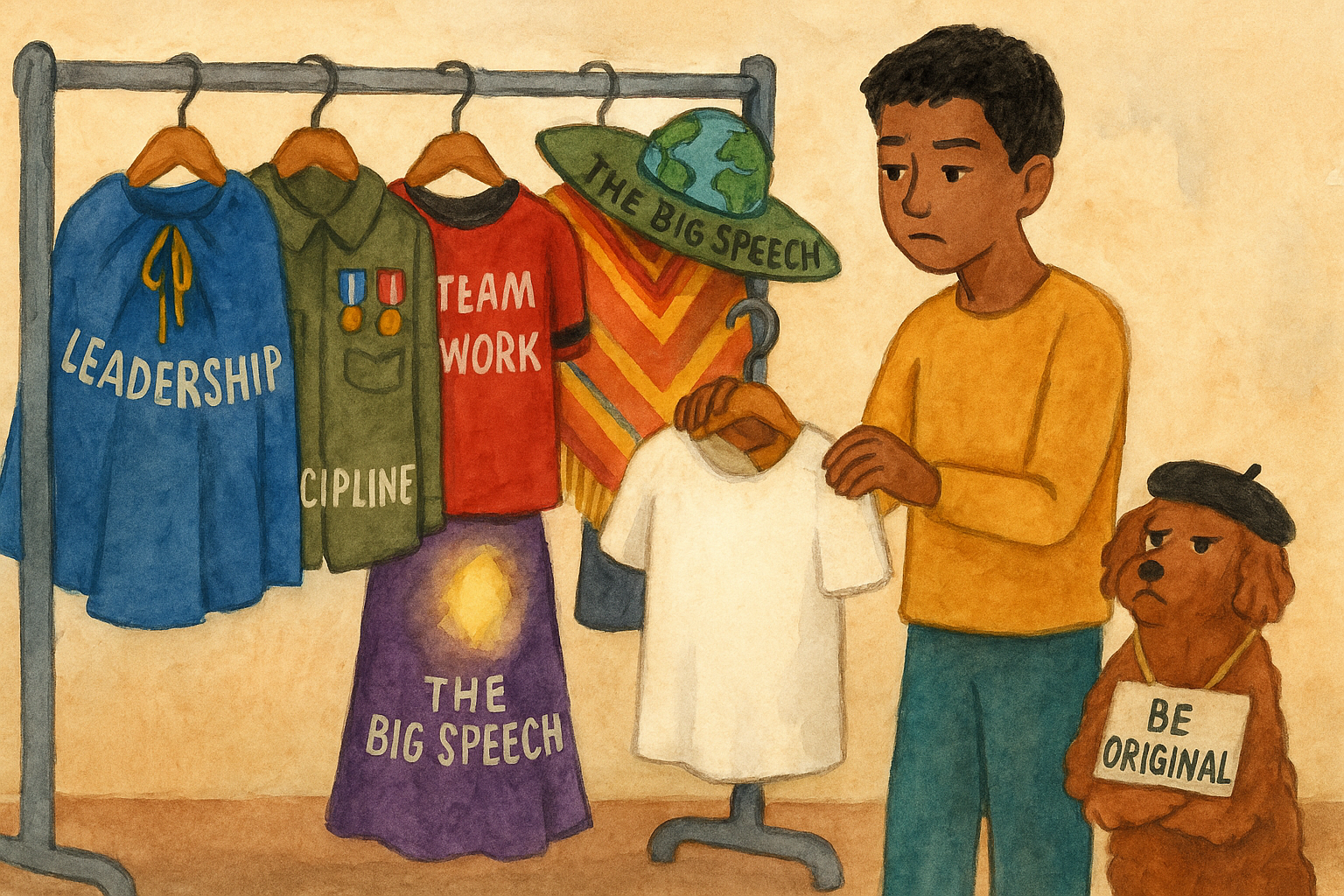
College Essay Clichés (& How to Avoid Them)
In college essays, it’s not what you write about, it’s how you do it. But some topics are so overused, they’re practically begging you to blend in. If your essay sounds like it could’ve been written by 30,000 other kids with a 4.0 and a varsity letter, you’ve already lost the admissions officer’s attention.
Here’s a breakdown of the most eye-roll-inducing college essay clichés and how to flip them into something actually worth reading.
The “We Won the Big Game” Story
Why it’s tired: Scoring the winning goal. Taking state. Giving a locker room speech that would make Ted Lasso cry. We've read this one a thousand times.
A better move: Zoom in. What happened on the bench when you weren’t playing? What did your injury teach you about ego? What did losing do to your self-image? That’s where the real story lives.
The “Volunteer Trip Changed My Life” Essay
Why it’s tired: Going abroad to “help people” and realizing how “lucky” you are isn’t depth — it’s optics.
A better move: Show us how the experience changed you in a tangible, grounded way. Who did you meet? What did you take home and actually do with it? Keep the focus on your internal shift, not the photo op.
The “Injury or Illness Made Me Stronger” Arc
Why it’s tired: Everyone loves a comeback story. But if it’s just “I was hurt, now I’m healed,” you’ve skipped the best part.
A better move: What cracked open emotionally? What parts of you broke that had nothing to do with your body? Go there.
The “My Grandparent Died” Reflection
Why it’s tired: Losing someone you love is real — but unless you dig into how you changed, the essay becomes more about them than you.
A better move: What part of them lives in you now? What belief, ritual, or fight did they pass down that shapes your worldview? Make it yours.
The “One Big Epiphany” Essay
Why it’s tired: “Then I realized...” is a hard structure to pull off. Change isn’t usually instant — it’s layered.
A better move: Ditch the mic-drop moment and trace your evolution. Show the reader the breadcrumbs of doubt, conflict, growth, and clarity.
The “I’m Going to Fix the World” Manifesto
Why it’s tired: Bold ambition is great. But saying you’ll solve climate change as a high schooler just isn’t believable.
A better move: Zoom in. What’s the small thing you actually did? Who did it help? Show how you act when no one’s grading you.
The “I Moved and It Changed Everything” Essay
Why it’s tired: Changing schools or cities is common, but most of these essays skip past you.
A better move: Tell us what cracked open in your relationships or identity. What new lens did this change force you to adopt?
The “Losing Season Taught Me Grit” Essay
Why it’s tired: “We didn’t win, but we learned perseverance.” Yawn.
A better move: What unexpected part of you showed up? Did you become someone else's rock? Did you stop caring about wins and focus on team dynamics? That’s more interesting than grit alone.
The “I’m Passionate About X” Proclamation
Why it’s tired: Passion without proof reads like a resume bullet.
A better move: What do you do when no one’s watching? What rabbit holes do you dive into at 2am? Give us a scene, not a sales pitch.
The “I Broke the Stereotype” Narrative
Why it’s tired: “They thought I couldn’t, but I did” is only the start of the conversation.
A better move: Go deeper. What did the stereotype make you believe about yourself? How did you navigate the nuance? What did you internalize, and how did you unlearn it?
The “I Didn’t Win, But I Grew” Essay
Why it’s tired: These essays follow a formula: I didn’t get first place, but I got character.
A better move: Focus on how you responded. What shifted? Who noticed? What moment surprised you?
The “My Pet Changed My Life” Ode
Why it’s tired: Pets are cute, but writing “my dog taught me empathy” is surface-level.
A better move: What did that relationship reveal in you? Did your pet anchor you in a tough time? Did they mirror something you couldn’t name? Go there.
None of these topics are banned. But if you want to write one, you have to flip the script. Get specific. Get personal. Avoid the billboard version of your story and bring us into the backroom, the quiet, weird, human parts that only you could write. That’s how you stand out.
And if you’re not sure how to do that? That’s what we’re here for.

Post a comment